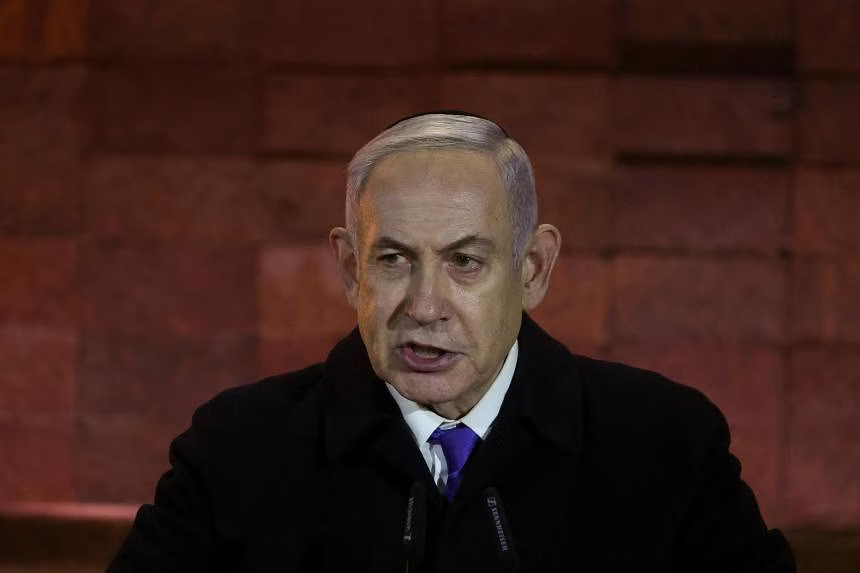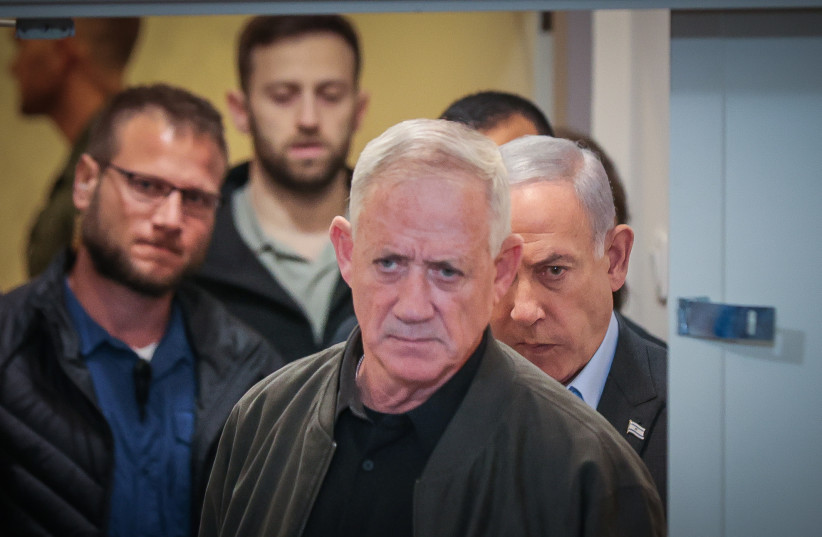
In a significant political maneuver, Israeli Prime Minister Benjamin Netanyahu has dissolved the six-member War Cabinet following the departure of centrist former general Benny Gantz from the government. This move marks the end of a temporary alliance forged during the Gaza conflict and underscores ongoing tensions within Netanyahu’s coalition.
The War Cabinet, formed at the outset of the war in October, was a product of a national unity government, including key figures such as Gantz, Netanyahu, Defense Minister Yoav Gallant, Gantz's partner Gadi Eisenkot, and Aryeh Deri, head of the religious Shas party, who served as observers. The primary purpose of this specialized cabinet was to streamline decision-making during the conflict and to curb the influence of far-right politicians in critical wartime strategies.

Gantz’s push for the War Cabinet aimed to ensure a more balanced and centrist approach to the conflict, reducing the sway of far-right elements within Netanyahu’s government. This move was also intended to maintain more stable relations with international partners, including the United States, which had expressed concerns about the inclusion of nationalist-religious figures in high-stakes decision-making.
However, internal pressures mounted as nationalist-religious coalition members, Finance Minister Bezalel Smotrich and National Security Minister Itamar Ben-Gvir, demanded inclusion in the War Cabinet. Their participation would have likely exacerbated tensions with international allies and complicated the strategic landscape. This internal discord, coupled with strategic disagreements, ultimately led to the unraveling of the War Cabinet.
The immediate catalyst for the dissolution was the exit of Gantz and Eisenkot from the government, citing Netanyahu’s failure to establish a coherent strategy for the Gaza war. Their departure signaled a breakdown in the unity government and underscored the challenges of maintaining a cohesive strategy amid divergent political views.
Netanyahu, now expected to hold consultations about the Gaza war with a smaller group of ministers, has retained key figures such as Defense Minister Yoav Gallant and Strategic Affairs Minister Ron Dermer. This streamlined advisory group aims to facilitate more focused and decisive discussions on the ongoing conflict.
The dissolution of the War Cabinet represents a turning point in Israel’s handling of the Gaza war and highlights the complexities of coalition politics in times of crisis. Gantz’s initial collaboration with Netanyahu was seen as a pragmatic step to ensure effective wartime governance. Still, the friction between centrist and far-right elements within the government proved to be a persistent challenge.
The move has also prompted reflection on Netanyahu’s broader strategy and leadership during the conflict. Critics argue that the dissolution reflects a lack of coherent long-term planning and an overreliance on short-term political alliances. Supporters, however, view the move as a necessary step to regain control over the government’s strategic direction.
As Israel navigates the ongoing conflict in Gaza, the dissolution of the War Cabinet will likely have significant implications for both domestic politics and international relations. The coming weeks will reveal how Netanyahu’s government adapts to this new phase and whether a more unified strategy can be developed in the absence of the War Cabinet.

















